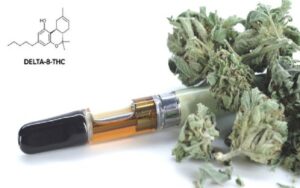
Factors to Consider When Opting for Testosterone for Men
Testosterone therapy for men refers to a medical intervention meant to treat low testosterone levels, alternatively referred to as hypogonadism. Testosterone is a crucial hormone responsible for developing male reproductive tissues and maintaining bone density, muscle mass, and overall well-being. While testosterone levels naturally decline with age, some men may experience a more significant decrease, leading to symptoms that affect their quality of life.
The decision to opt for testosterone therapy for men should be carefully considered, and several factors come into play when determining the right time for this treatment.
These factors include;
Low testosterone symptoms
Common symptoms include fatigue, decreased libido, erectile dysfunction, mood swings, reduced cognitive function, and loss of muscle mass. If a man is experiencing a cluster of these symptoms and they persist over time, it may be an indication that his testosterone levels are below the normal range. However, it’s essential to note that these symptoms can also result from various other medical conditions. Hence, a thorough evaluation by a healthcare professional is crucial to confirm the diagnosis of low testosterone.
Results of blood tests measuring testosterone levels
If laboratory tests consistently show low testosterone levels, it provides objective evidence supporting the need for intervention. It’s important to interpret these results in the context of the individual’s overall health, considering factors such as age, medical history, and the presence of other health conditions.
Diseases
Beyond symptoms and lab results, the impact of low testosterone on a man’s overall health should be assessed. Low testosterone has been associated with various health issues, including an increased risk of osteoporosis, cardiovascular disease, and metabolic syndrome. Addressing these underlying health concerns may be crucial in determining the appropriateness of testosterone therapy.
Psychological factors
Psychosocial factors should also be considered when deciding on testosterone therapy. The symptoms of low testosterone, such as mood swings and decreased motivation, can significantly impact a man’s emotional well-being and quality of life. If these symptoms are affecting personal relationships, work performance, and overall happiness, testosterone therapy may be a viable option to improve these aspects of life.
Contraindications and potential risks
Before starting testosterone therapy, it is essential to rule out contraindications and potential risks associated with the treatment. Pre-existing conditions such as prostate cancer and severe cardiovascular disease may be exacerbated by testosterone therapy. Therefore, a comprehensive medical evaluation, including a thorough history and physical examination, is necessary to ensure that the benefits of testosterone therapy outweigh the potential risks in each individual case.
Lifestyle modifications
Lifestyle modifications should be considered as part of the overall approach to managing low testosterone. Adopting a healthy diet, engaging in regular physical activity, getting adequate sleep, and managing stress can positively impact testosterone levels and overall well-being. In some cases, lifestyle changes alone may be sufficient to address mild symptoms of low testosterone.
Final Thoughts
The decision to opt for testosterone therapy in men should be based on a comprehensive assessment of symptoms, laboratory results, overall health, psychosocial factors, and potential risks. Collaboration between the individual and a knowledgeable healthcare provider is crucial to making informed decisions. Testosterone therapy can be a valuable tool in improving the quality of life for men with clinically significant low testosterone levels, but it should be approached with careful consideration and personalized medical guidance.



Average Rating